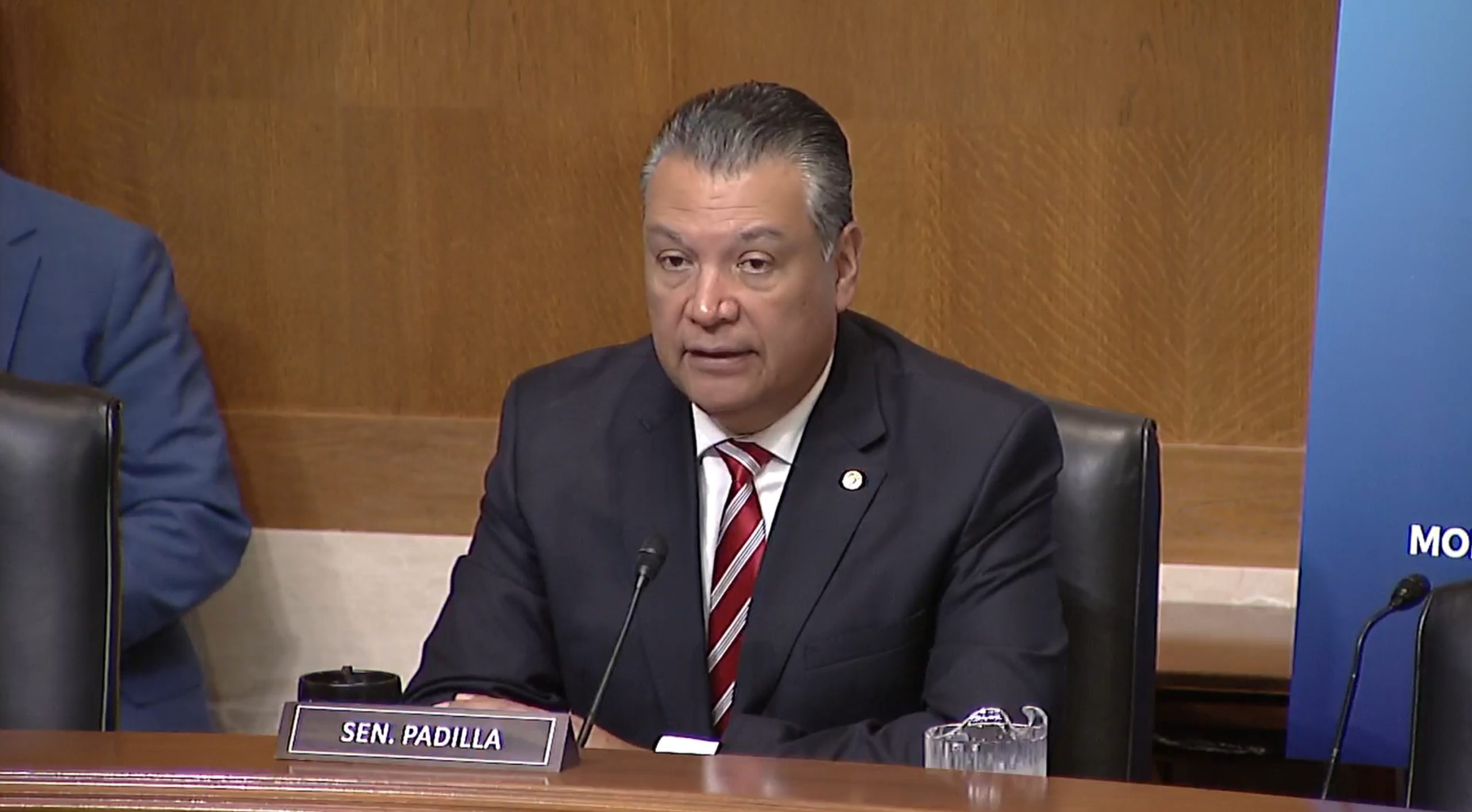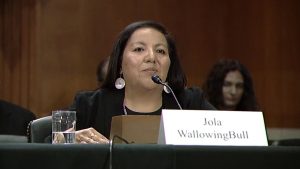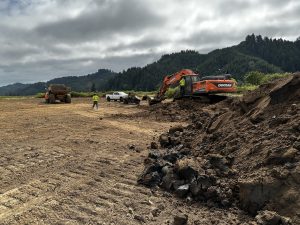Podcast: Play in new window | Download | Embed
A First Nation in British Columbia says it has found nearly 160 child deaths at four facilities in the province.
As Dan Karpenchuk reports, most of the deaths occurred at a hospital.
The probe by the Stó:lō Nation in British Columbia focused on unmarked graves and missing children, going back to the 1860’s.
But representatives of the First Nation and its research and resource management center say the work is only beginning.
So far, obstacles have been the lack of access to information from Ottawa as well as religious institutions that were linked to residential schools.
The research, using ground penetrating radar, archives, and field work, was into three residential schools, cemeteries, and a First Nation hospital.
Most of the children died of diseases such as tuberculosis. Some from accidents.
Amber Kostuchenko is a researcher and the project manager.
“One child died because they were jumped on by another student. Another child was reported to have hit their head against the bed under unknown circumstances. And another was reported to have broken their spine while jumping rope.”

St. Mary’s Indian Residential School
The institutions included the St. Mary’s Indian Residential School, the Coqualeetza Industrial Institute, and the Coqualeetza Hospital – all three in British Columbia’s Fraser Valley. And the fourth was the All Hallows School in Yale, BC.
Kostuchencko says her team is still gathering information and has only accessed about half of the 70,000 documents they need.
One of the lead researchers also says interviews with survivors suggested many atrocities committed against children, including sexual assaults, starvation, and secret burials.
Some survivors allege that the St Mary’s school was a place of punishment and starvation – and later when it moved to a second location, a place of pedophilia.
 Photo: Emma VandenEinde / KUNC
Photo: Emma VandenEinde / KUNC
For years, it was extremely difficult to find meals like bison pot roast or an elk taco at a restaurant.
Yet, Indigenous cuisine has been in the Americas for centuries.
KUNC’s Emma VandenEinde joined a chef in Denver community kitchen Same Day Café to see her approach to the cuisine.
Chef Andrea Murdoch (Indigenous Andean) is busy in the kitchen.

Photo: Emma VandenEinde / KUNC
She’s baking her light blue sugar cookies with the help of some volunteer chefs.
“‘They’re like blue!’ ‘Yeah. They stay blue.’ ‘They do?’ ‘Yeah.'”
The color is made using Ute Mountain Ute cornmeal from Southwest Colorado.
“And blue cornmeal is something that’s very specific to the Four Corners region of the U.S. Like you will not find this easily out on the West Coast, out on the east coast.”
And this isn’t the first time she’s used unique ingredients.
“I sourced locally and indigenously to support those economies. Kroger doesn’t need my money.”
It all started when Murdoch expanded Four Directions Cuisine, her food business.
She wanted to create South American cuisine, and through her research, she found that ingredients representative of the culture were pre-colonial.
Like rabbit, bison, or other foods that existed in the Americas before colonizers arrived.
“I have this distinct privilege and honor to be able to take the teachings from others and translate that through menus.”
Along with sourcing food from local and Indigenous farmers, she forages around her for flowers and grasses, praying to the weather god Illapa for rain.
As she cooks, she taps into what she calls her “sixth sense” and connects with plants and animals that are seen as relatives in her culture.
“There’s an element of listening to the ingredients and understanding how you’re going to honor them best.”
Indigenous cuisine like Murdoch’s has recently grown in popularity, with many restaurants opening in cities like Minneapolis and Seattle.
And, for the second year in a row, a Native chef won a James Beard award – almost like the Oscars for cooking.
But it wasn’t always this way. And there’s still room to grow.
“We find food from all over the world in our amazing cities. And very seldom do we find food of where we happen to be standing that represents the land and the Indigenous communities and cultures.”
That’s Sean Sherman (Oglala Lakota), head chef of Owamni in Minnesota and a multi-James Beard Award winner.
“We should really be focused on what’s the true food of North America. And you can’t understand North American food unless you bring the Indigenous perspective into it.”
Get National Native News delivered to your inbox daily. Sign up for our newsletter today.
 A celebration of Indigenous music and culture took place in Juneau, Alaska last week packed with three days of music and 25 different acts.
A celebration of Indigenous music and culture took place in Juneau, Alaska last week packed with three days of music and 25 different acts. “We’re not gonna have seats like the traditional seats, we’re gonna have places where people can just chill out. You might be able to, you know, hang out on a piece of like sea out or fur and just kind of lay out and relax or maybe even smudge with some sage. I’m imagining some organic, just amazing magic being made.”
“We’re not gonna have seats like the traditional seats, we’re gonna have places where people can just chill out. You might be able to, you know, hang out on a piece of like sea out or fur and just kind of lay out and relax or maybe even smudge with some sage. I’m imagining some organic, just amazing magic being made.” The event will also raise awareness for the need for equipment for Diné youth and will help the organizations get to their goal of providing more than 2,000 youth on Navajo Nation with skate equipment.
The event will also raise awareness for the need for equipment for Diné youth and will help the organizations get to their goal of providing more than 2,000 youth on Navajo Nation with skate equipment.
 The 8th president of Haskell Indian Nations University in Lawrence, Kan. was sworn in this week.
The 8th president of Haskell Indian Nations University in Lawrence, Kan. was sworn in this week. U.S. Sen. Alex Padilla (D-CA), chair of the Environment and Public Works Subcommittee on Fisheries, Water, and Wildlife, held a hearing entitled “Drinking Water and Wastewater Infrastructure in Tribal Communities.”
U.S. Sen. Alex Padilla (D-CA), chair of the Environment and Public Works Subcommittee on Fisheries, Water, and Wildlife, held a hearing entitled “Drinking Water and Wastewater Infrastructure in Tribal Communities.” Jola WallowingBull is the director of the Northern Arapaho Tribal Engineering Department and is a member of the Northern Arapaho Tribe from the Wind River Indian Reservation.
Jola WallowingBull is the director of the Northern Arapaho Tribal Engineering Department and is a member of the Northern Arapaho Tribe from the Wind River Indian Reservation. The Michigan Bar Association’s representative committee will grant its 2023 Unsung Heroes Award to the Honorable Melissa L. Pope, the Chief Tribal Court Judge of the Nottawaseppi Huron Band of the Potawatomi on September 24.
The Michigan Bar Association’s representative committee will grant its 2023 Unsung Heroes Award to the Honorable Melissa L. Pope, the Chief Tribal Court Judge of the Nottawaseppi Huron Band of the Potawatomi on September 24.

 The Avera Research Institute has been awarded $58 million in grant dollars to be distributed over a seven-year period.
The Avera Research Institute has been awarded $58 million in grant dollars to be distributed over a seven-year period.











